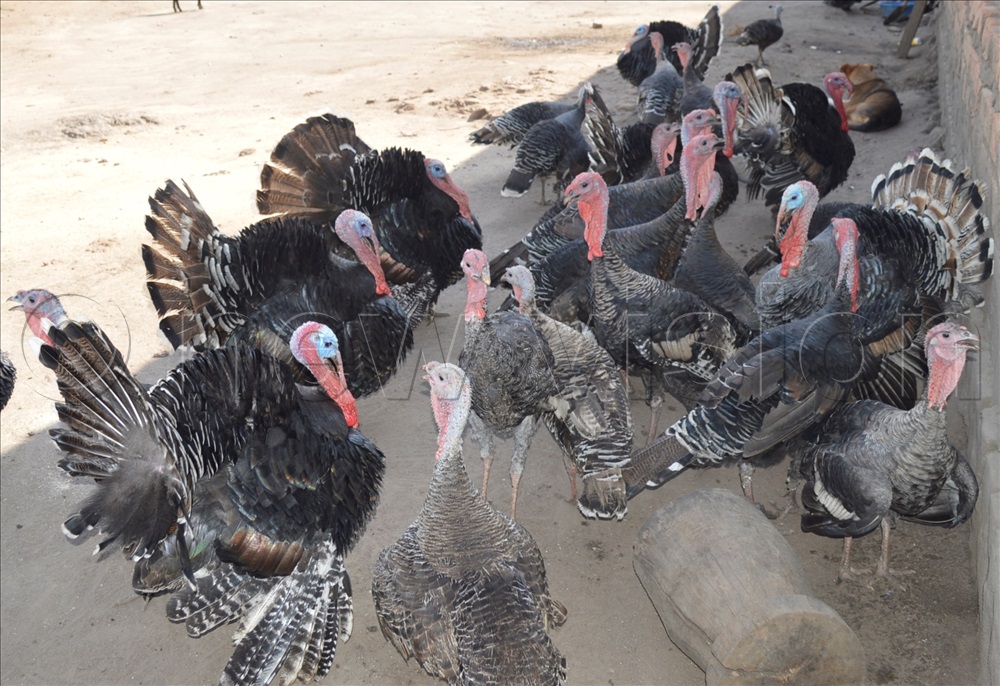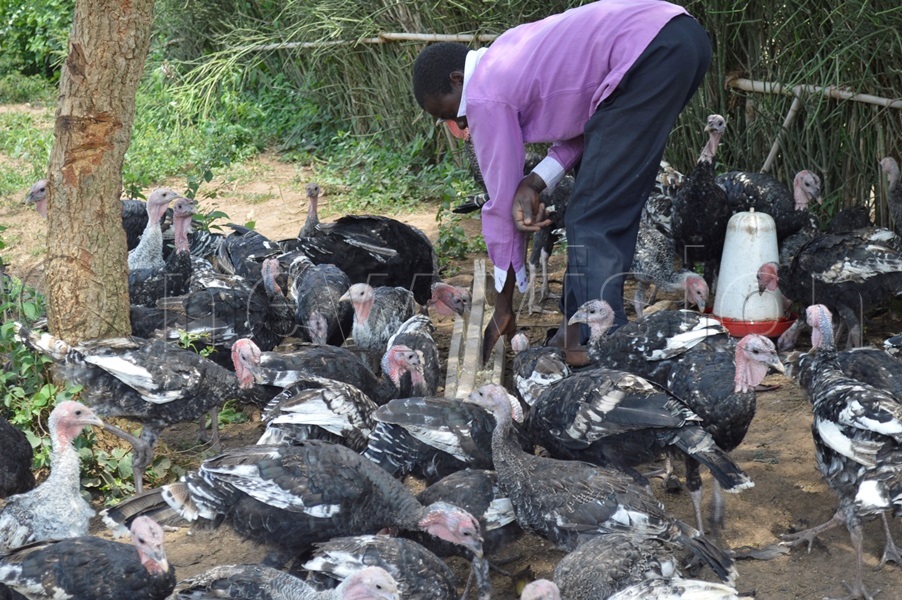By Umar Nsubuga
Wilson Nkurunziza, a famous turkey in Lwensama, village Mubende district says turkey farming is one of the unique business ideas you can venture into.
He says turkeys are very good scavengers consuming earthworms, small insects, snails, kitchen waste and termites.
“Turkeys only need a lot of care when still young. Young poults need to be kept warm by being kept close to a source of heat,” he says.
Turkeys start laying eggs at six to eight months and this production period is up to 24 weeks from the point of lay. Under proper feeding, a single turkey lays as much as 60-100 eggs annually. Nearly 70 percent of the eggs will be laid in the afternoon. When it comes to hatching, it can hatch as many as 15 at each sitting.

It is very challenging when turkeys start laying eggs because they do not want anybody to see them.
The incubation period is 28 days. There are two methods of incubation. Natural incubation with sitting females; naturally turkeys are good brooders and each can hatch 10-15 numbers of eggs. Only clean eggs with good eggshells and shape should be placed for brooding to get 60%-80% hatchability and healthy poults.
Turkeys require particular conditions which are different from those for other poultry birds. First of all, turkeys need a lot of space by virtual of their size.
Specifics for breeding and incubating turkeys are quite different from chicken.
Feeding
According to Nkurunziza, start your turkeys on starter mash. Make sure there is plenty of starter mash in the feeders, and that the chicks have fresh clean water at all times. Common varieties of turkeys include broad-breasted bronze and Broad-breasted white.

Feed for turkey poults must contain at least 24 per cent protein (not found in many commercial feeds), 2 per cent calcium and 0.9 per cent phosphorus.
Turkeys require about six square feet of space each.
Young ones
For a start, a lamp that provides 100F is required. The temperature should be lowered by five degrees a week thereafter.
Young turkeys can be hard to look after as they have been known to eat their litter.
Remember that turkeys are curious birds. It is hard to tell what they can get into. You should strive to keep the area where your turkey lives free of hazardous elements like oil.
Facts about turkey meat
Turkey meat has nutritional and sensorial properties which make it almost ideal raw material for rational and curative nutrition.
People prefer turkey meat because of its leanest nature.
It is also rich in essential amino acids and vitamins like niacin, vitamin B6 and B12. It is rich in unsaturated fatty acids and essential fatty acids and low in cholesterol.
A well-fed mature turkey will give over 90 eggs per year. Turkeys are known for their protein content which is good for the body and a good source of amino acids. Just one serving of turkeys provides 65% of your recommended daily intake of protein.
Turkey is known to contain traces of minerals, thought to aid in cancer prevention. It contains selenium, which is essential for the healthy function of the thyroid and immune system. Selenium is an antioxidant and protects against cancer.
Turkey is considered a good source of vitamins.
Saturated fat is necessary for biological functions, hormone production, padding for organs and energy. While saturated fat is necessary for a healthy body, most moderately-active people need to avoid too much of it in their diet. Turkey has under 12% of the recommended daily allowance of saturated fat per 4oz.
Grass-fed turkey raised under organic conditions conveys the most health benefits. Grass-fed turkeys offer higher nutrition and are superior to birds given antibiotics or raised without access to natural pasture.
Diseases
Fowl pox disease is a viral infection that attacks turkeys and chickens.





